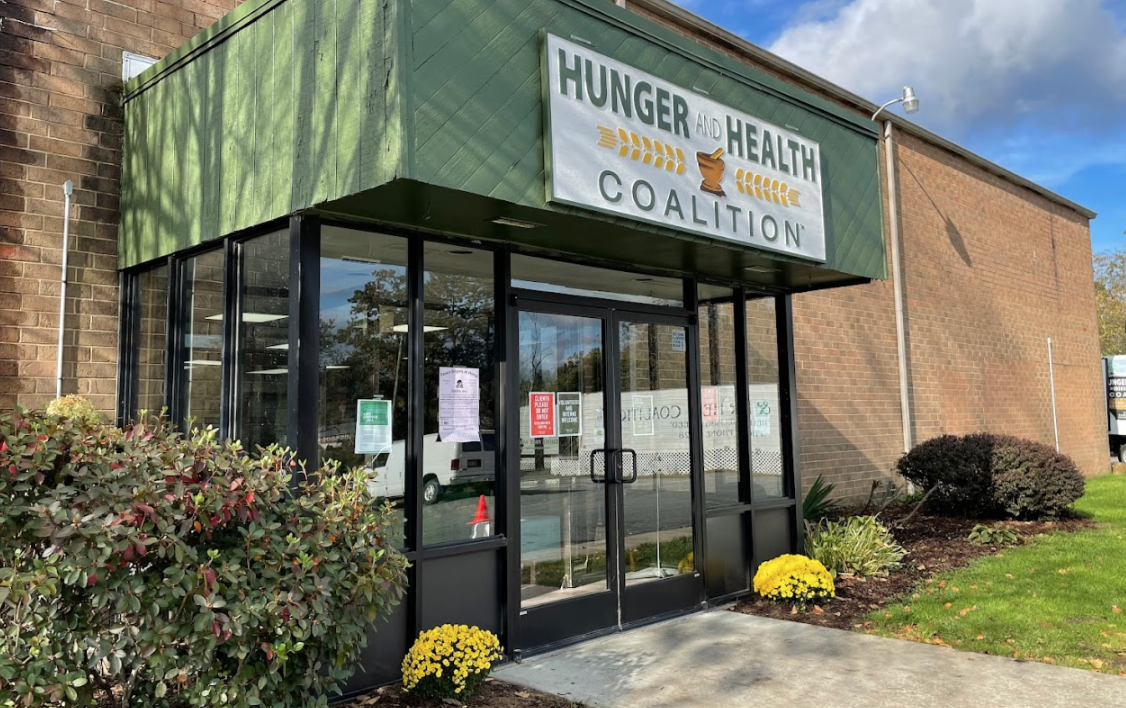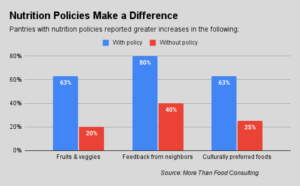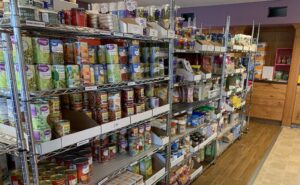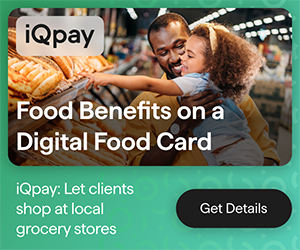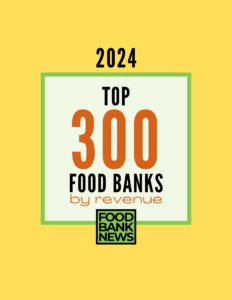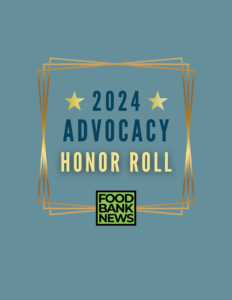In a recent video, the head of a healthcare foundation articulated why partnerships between healthcare providers and hunger relief organizations can be so challenging, despite the growing mounds of evidence that a food-secure population leads to improved public health.
John Lumpkin, M.D., M.P.H., president of Blue Cross and Blue Shield of North Carolina Foundation, described a “toxic fee-for-service payment system” that forces nonprofits to work within healthcare’s payment structures. Nonprofits that work with healthcare have to modify their business processes and operating structures, leading to increased costs and the risk they will fail, he said.
In a new partnership, Blue Cross NC and Hunger and Health Coalition of Boone, N.C., have found a better way to structure Food as Medicine relationships, leading to a steady payment stream that enables Hunger and Health Coalition to distribute lots of healthy food. In a pilot begun in January, Hunger and Health Coalition is serving about 1,000 households per month with food boxes, food deliveries and medically tailored meals.
Blue Cross NC’s funding for the one-year pilot makes up a sizable portion of Hunger and Health Coalition’s overall operations and most of the budget for medically tailored meals. “It is the majority of our healthier food budget; it’s instrumental in buying that food,” said Maura McClain, Director of Strategic Initiatives.

Blue Cross NC and Hunger and Health Coalition brainstormed together on their approach. Rather than peg payments to specific services per member in a fee-for-service arrangement, the health insurer provides a lump-sum “capitated payment” that makes Hunger and Health Coalition’s work easier and more powerful.
Capitation is a fixed amount of money per patient per unit of time, paid in advance for the delivery of healthcare services. “Something unique about this program, and why it works for us, Blue Cross Blue Shield, and our clients so seamlessly, is that we’re getting this lump sum and it’s up to us on how we’re spending it, instead of typical insurance coverage where we’re going to have to code and go through that whole process and then get a specific dollar amount towards each client,” McClain said.
Added Jenn Bass, Executive Director, “When Blue Cross came to us, they said, ‘What are your operating costs? How much are you spending on produce? What staff do you have in place to ensure that your operations are running effectively?’ And we gave them that number.” (Also in North Carolina, Blue Cross Blue Shield has supported the nation’s largest produce prescription program with a multi-million dollar contract, as Food Bank News wrote about here).
Hunger and Health Coalition has taken a broad view of the types of clients who qualify for its healthy food. “Our medically tailored food boxes are specifically created for those with diabetes, hypertension and heart disease,” McLain said. “But we’re also able to tailor based on gluten-free boxes if someone has celiac disease, if they have nut allergies, and even certain lifestyle choices, if they want to be vegan, or even if they don’t have a chronic illness and they’re just looking to have a generally healthier diet.”
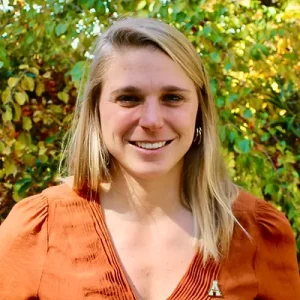
The other thing that’s unusual about the partnership is that it supports members across Blue Cross NC’s lines of business. Food insecurity is often associated with people who are enrolled in Medicaid, explaining the growing interest in new ways to address food insecurity through Medicaid 1115 waivers, as Food Bank News wrote about here. But costs are also high enough among people with Affordable Care Act plans or employer-sponsored coverage to warrant new payment initiatives by private insurers.
Indeed, the growing effort by private insurers to engage members in healthier behaviors and outcomes explains why private providers of healthy food boxes, such as FarmboxRx, have recently sprung up to serve health insurers and are earning multi-million-dollar revenue streams, as Food Bank News wrote about here.
Like many insurers, Blue Cross NC determined that 20% of its non-Medicaid members were at risk of food insecurity, Dr. Lumpkin said. These include commercial members insured by their employers, Affordable Care Act members, or Medicare members. Among Blue Cross NC’s Medicare members, 1 out of 3 is food insecure, he said.
Overall, the pilot is empowering the Hunger and Health Coalition to do more of what it does best, Bass said. “For us, success looks like helping as many people as possible,” she said. “If Blue Cross Blue Shield comes back to us each year and increases the amount that they’re giving us, … we’re going to increase the amount of produce that we’re able to give to folks. We will never have to worry about having enough food on the shelves to get to people.”
Bass expects to be able to develop similar collaborations with other insurers going forward. “We want to leverage the power that Blue Cross Blue Shield is giving us with this, and then go to other health insurance providers and say, ‘Look, we’re saving the healthcare system money,’” she said. – Aliyah Baruchin
Aliyah Baruchin is a N.J.-based journalist, writer and editor. Her reporting focuses on health and healthcare, and her work has appeared in The New York Times, Scientific American, Neurology Today, Essence, MORE, and other national publications.
Like what you’re reading?
Support Food Bank News
